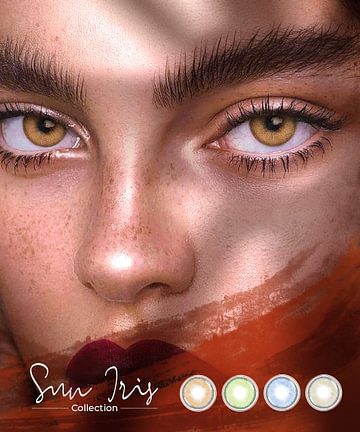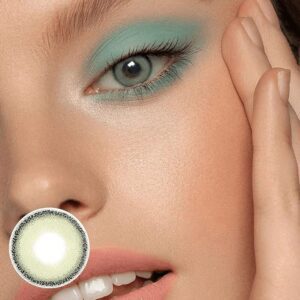
Gruppen und Situationen, in denen das Tragen farbiger Kontaktlinsen ungeeignet ist
Geschrieben von
Amy@Unicornsbeauty
Kommentare deaktiviert für Groups and Situations Unsuitable for Wearing Colored Contact Lenses

Contact lenses belong to the category of medical devices, and there are strict norms and procedures for their use because they need to fit closely to our eyes. Here are some tips about the contact lens, so please keep all these precautions in mind.
In special age:
Teenagers are less than 18 years old, and their eyeballs have not fully developed yet, that is to say, the underage individuals’ eyeballs are still in their prime of growth and development, and the visual axis of the eyeballs has not yet been developed completely.
And the old who are over 50 should not wear contact lenses too. Because their eye tissues begin to degenerate and the resistance of the eye’s safety decreases, wearing contacts may lead to a lack of oxygen in the eye, making it easy for corneal infections, ulcers, and other complications to occur. So adolescents and the old should not wear contact lenses.
Other special situations:
Health conditions:
Feeling unwell:
When you have a cold, avoid wearing contact lenses as your hands carry germs that can enter your eyes while taking and wearing glasses. If you have a fever, your body’s resistance is lower, and metabolites of bacteria can accumulate between the cornea and the lens, leading to bacterial corneal ulcers.
Have done myopia correction surgery:
Because there will be incisions in the cornea after the surgery, as well as dryness of the eyes and reconstruction of the nervous system, do not wear contacts while you are still recovering.
Poor eye health:
Individuals with certain eye conditions such as dry eye, conjunctivitis, corneal diseases, or any eye infection should avoid wearing cosmetic contact lenses because these conditions can be exacerbated by wearing contact lenses. What’s more, if you have sensitive or easily irritated eyes, wearing cosmetic lenses may exacerbate these issues. That is the reason why it’s essential to prioritize your eye health and comfort.
ICHn special period:
- Pregnant woman:
As for pregnant women hormonal changes take place, causing the water content in the body to change as well. The eyelids may feel swollen, and the cornea of the eye thickens, thus causing discomfort.
- In menstrual cycle:
As the intraocular pressure is often higher than usual during this period, the area around the eye is also more prone to congestion.
Activities to avoid:
- Extreme Exercising:
Exercising like bathing, swimming, and diving are not recommended to wear contact lenses. On the one hand, water can easily penetrate the eyes and lead to eye inflammation. On the other hand, wearing contact lenses to do these activities makes it easy to lose the lenses, which will be tough to find, especially for highly nearsighted people.
- Cycling or long-distance travel:
Wearing contact lenses while cycling or long-distance traveling will reduce the lens moisture, and the lens will gradually dry and harden, then the hardened lens will hurt the cornea, and finally cause eye pain or bacterial infection.
- Entering a sauna room:
The high temperature and high humidity of the steam process may have a negative impact on the comfort and safety of wearing contacts, and our eyes tend to dry out in hot environments. Combining these two factors may cause eye discomfort and dry eye. Moreover, a high humidity environment may increase the growth of bacteria and other pathogens, which will cause a risk of eye infections if the contact lenses are not properly cleaned and maintained. At the same time, your sweat may come into contact lenses with your eyes and, in turn, your contact lenses, which may lead to contamination of your contacts. If you unconsciously rub your eyes while sweating, this may contribute to your contacts shifting or falling out. All these bad situations will happen when you wear contact lenses to do sauna or steaming.
Attention:
- Do not touch the pupil with your fingernails directly rather thanuse your fingertips to touch the pupil gently.
- The lenses cannot be re-worn after they have dried out.
- In bad weather conditions do not wear the contact lens.
- Contact lenses are personal items and should not be shared with others as they might spread eye infections and diseases.
- To wear it the next day if you have a bad rest or stay up late is not recommended.
- After you are used to wearing it, try not to wear it for more than 8~10 hours a day.
How can I know whether I have a good candidate for contact lenses?
An eye exam is required, which usually includes a refractive exam to determine the proper prescription for lenses and to assess the health of the eyes because contact lens wear is prohibited for people with eye conditions such as active infections, allergies, and dry eye.


 Gold
Gold
